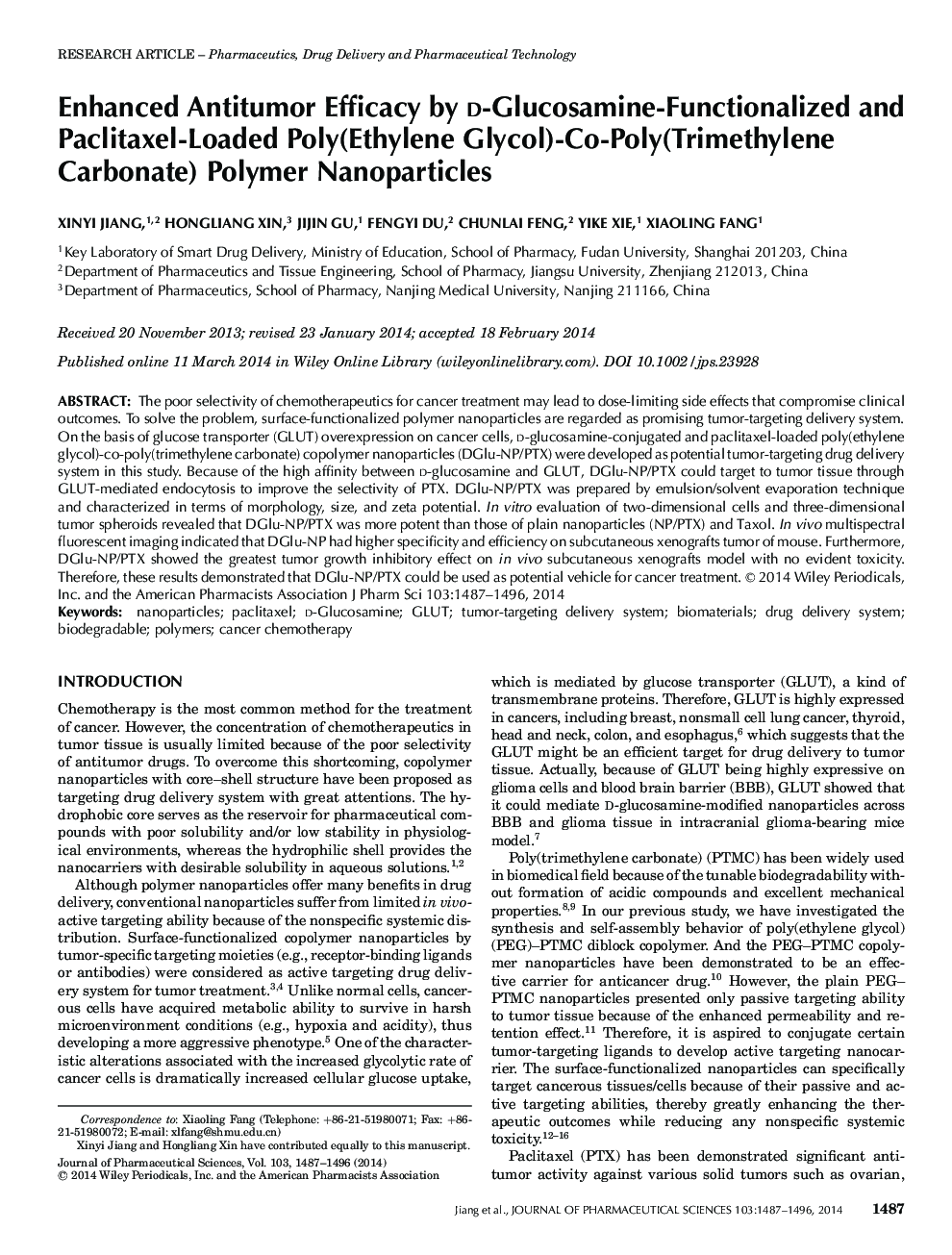| Article ID | Journal | Published Year | Pages | File Type |
|---|---|---|---|---|
| 10162359 | Journal of Pharmaceutical Sciences | 2014 | 10 Pages |
Abstract
The poor selectivity of chemotherapeutics for cancer treatment may lead to dose-limiting side effects that compromise clinical outcomes. To solve the problem, surface-functionalized polymer nanoparticles are regarded as promising tumor-targeting delivery system. On the basis of glucose transporter (GLUT) overexpression on cancer cells, d-glucosamine-conjugated and paclitaxel-loaded poly(ethylene glycol)-co-poly(trimethylene carbonate) copolymer nanoparticles (DGlu-NP/PTX) were developed as potential tumor-targeting drug delivery system in this study. Because of the high affinity between d-glucosamine and GLUT, DGlu-NP/PTX could target to tumor tissue through GLUT-mediated endocytosis to improve the selectivity of PTX. DGlu-NP/PTX was prepared by emulsion/solvent evaporation technique and characterized in terms of morphology, size, and zeta potential. In vitro evaluation of two-dimensional cells and three-dimensional tumor spheroids revealed that DGlu-NP/PTX was more potent than those of plain nanoparticles (NP/PTX) and Taxol. In vivo multispectral fluorescent imaging indicated that DGlu-NP had higher specificity and efficiency on subcutaneous xenografts tumor of mouse. Furthermore, DGlu-NP/PTX showed the greatest tumor growth inhibitory effect on in vivo subcutaneous xenografts model with no evident toxicity. Therefore, these results demonstrated that DGlu-NP/PTX could be used as potential vehicle for cancer treatment. © 2014 Wiley Periodicals, Inc. and the American Pharmacists Association.
Keywords
Related Topics
Health Sciences
Pharmacology, Toxicology and Pharmaceutical Science
Drug Discovery
Authors
Xinyi Jiang, Hongliang Xin, Jijin Gu, Fengyi Du, Chunlai Feng, Yike Xie, Xiaoling Fang,
